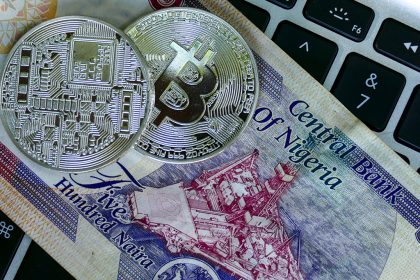Despite the crypto restriction by the Federal Government of Nigeria, Nigerians traded a minimum of #77.75 billion ($185m) worth of Bitcoin between January and March 2022.
It is over one year since the Central Bank of Nigeria (CBN) banned crypto commercial banks and other financial institutions from facilitating any crypto-related transactions. The ban restricts all financial institutions across the country from facilitating crypto exchanges for crypto. Before the prohibition, many Nigerians, especially millennials, have found crypto investments as a haven amid a high level of unemployment. While some put their funds in Bitcoin and other crypto assets, others have become crypto traders. Crypto has also become a hedge against the terrifying currency devaluation. More Nigerians adopted crypto during the EndSARS movement against police brutality. The protesters resorted to Bitcoin donations after the CBN directed banks to close the accounts of the campaign supporters. The bank warned that there would be “severe regulatory sanctions” for any institution that violates the directive.
How Federal Government Crypto Restriction Influences Nigerians’ Trading Behavior
Despite the crypto restriction by the Federal Government of Nigeria, Nigerians traded a minimum of #77.75 billion ($185m) worth of Bitcoin between January and March 2022. Citing data from P2P crypto platform Paxful, The Punch noted that the worth of BTC transactions during the period represents a 5.71% surge YoY. According to the P2P crypto company, transactions by Nigerian accounted for 25.87% of the total worth of BTC traded on the trading platform in 2022 Q1. Meanwhile, Paxful reported that the entire worth of Bitcoin transactions on its platform is #300.48 billion ($715m).
In the same year that the government acted against crypto, daily trades by Nigerians were up to 16,000. The trading volume made Nigeria the largest trading country in 2021 on Paxful. This comes amid the alarming adoption of P2P trading among citizens.
Moreso, crypto exchange KuCoin confirmed that around 33.4 million Nigerians buy, sell, or hold crypto assets on its platform.
In the wake of the persisting crypto adoption among Nigerians despite restrictions, prominent names in the Blockchain space are calling for a ban lift. Senator Ihenyen, the president of Stakeholders in Blockchain Technology Association of Nigeria voiced his opinion. He is also the General Secretary of Blockchain Industry Coordination Committee of Nigeria. Speaking to a correspondent of The Punch:
“Yes, I strongly believe that it is time the CBN thinks about its stance on crypto in Nigeria. No doubt that the CBN must have had compelling reasons for shutting out cryptocurrency in the country’s banking and financial system in February 2021.”
He added that the system has changed since the ban 15 months ago. Senator Ihenyen mentioned that less than 1% of crypto transactions are connected with illegal transactions. The executive also called for the partnership between CBN and crypto exchanges like Binance and Luno.
